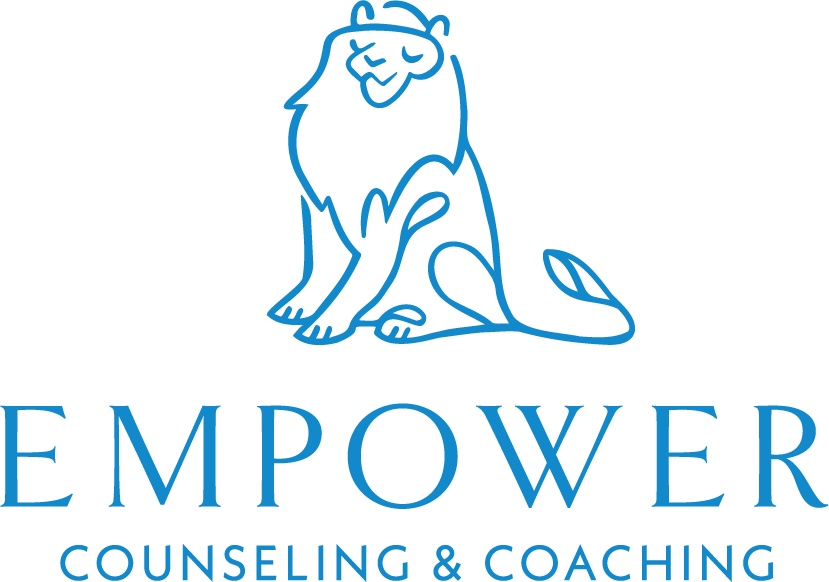 Are you a perfectionist? 10 questions to ask yourself to find out by Empower Counseling in Birmingham, Alabama.
Are you a perfectionist? 10 questions to ask yourself to find out by Empower Counseling in Birmingham, Alabama. When I ask people if they think they are perfectionists, the common response is “I’m not a neat freak so, I’m not a perfectionist.
Being a “neat freak” is not a necessary criterion for perfectionism. It can be, but just because you don’t have to have everything “just so”, does not mean you have escaped the grasp of perfectionism.
So how can you tell if you are a perfectionist? I have 10 questions for you to ask yourself to find out. But first, why should we care to know?
30% of the general public struggles with perfectionism. 80% of the gifted population (IQ of 115 or higher) struggles with perfectionism.
There are 3 types of perfectionism:
- Self-oriented: Strong motivation to be perfect
- Other Oriented: Unrealistic expectations of others
- Social prescribed: Belief that others have unrealistic (perfect) expectations of you.

What does perfectionism cost us?
If you suffer from self-oriented perfectionism, you can easily get stuck in your comfort zone, afraid to try anything new. Self-oriented perfectionists fear making mistakes and fear failure. If you are a self-oriented perfectionist, you might not have any hobbies because you are afraid you will not be able to do these hobbies “good enough” or “well enough”.
If you are a self-oriented perfectionist you do not let yourself be a beginner. You often compare yourself to others who have more experience or more knowledge than you.
Currently suffer from other-oriented perfectionism? Then you might micro-manage your family, or your co-workers, expecting them to be perfect. You might think that everyone should reach their potential all of the time. This can cause friction when the other person does not want the same things you want for them.
Perhaps you suffer from socially prescribed perfectionism, you worry about the judgment of others. You worry about disappointing others. You are often in your head trying to mind-read and uncover what others are thinking of you, instead of living your life.
You can start to see by now the ways that perfectionism interferes with our lives, keeping us from focusing on what we want because we are so locked on what we do not want to happen——mistakes and failure.

Ask yourself these questions to find out if you might be a perfectionist:
- Do you hold yourself to unrealistic or unattainable standards?
- Do you criticize yourself when you do not reach these impossible standards?
- Maybe you have the thought, “If I don’t do this myself, it will not be done properly).
- Perhaps, you focus on your flaws or the parts of you that must be fixed.
- Do you have a narrow definition of success and a broad definition of failure?
- Often, you believe others expect you to be perfect or to never make a mistake.
- Do you always seek the approval of others?
- Are you all about your results?
- Do you often feel like you are “not enough”?
- Do you procrastinate?
Dangers of Perfectionism:
Perfection, of course, is an abstraction, an impossibility in reality. When taken too far, striving for perfection can lead to negative outcomes, like procrastination, a tendency to avoid challenges, rigid all-or-nothing thinking, toxic comparisons, and a lack of creativity. If you find yourself relating to this post, check out these other helpful blogs on perfectionism:
3 Steps To Let Go Of Perfectionism
Anxiety Counseling for Perfectionism: Why College Students Need It More Than Ever

Begin Therapy for Perfectionism in Birmingham, al Today
As a recovering perfectionist, Kathryn Ely, of Empower Counseling, knows what perfectionism costs you. At Empower Counseling, we can help you recover from perfectionism, and live a much more joyful life. Follow the steps below to begin the path of healing.
- Contact us so we can learn more about you.
- Learn more about perfectionism therapy here.
- Discover how perfectionism doesn’t have to take over your life!
Other services empower counseling offers in Alabama
Kathryn Ely, at Empower Counseling is advanced trained in Acceptance Commitment Therapy which is proven affection for the treatment of anxiety, depression, and difficult life transitions. Empower Counseling is a Birmingham counseling clinic serving Mountain Brook, Homewood, Vestavia, Hoover, and all surrounding areas. Empower offers in-person, coaching, and online counseling to college students, young adults, and professionals. Call Empower today at 730-6570.
